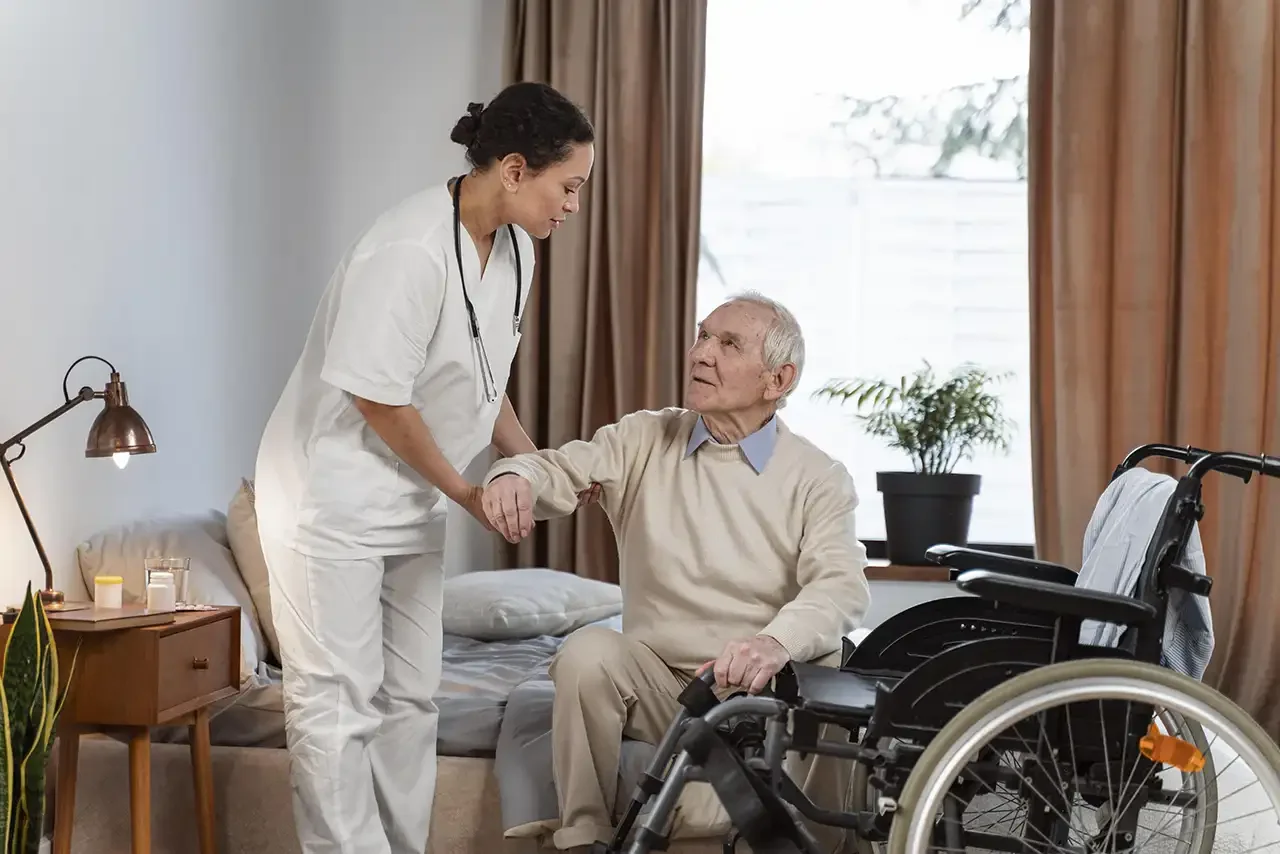Coordinated Care from Day One: How We Work with Your Hospital Team
Returning home after a hospital stay can be both exciting and challenging. For seniors, the transition requires careful planning to prevent complications and support recovery. One of the most effective ways to achieve this is through coordinated care, a collaborative approach that connects the hospital team, caregivers, and family members from the very first day.
By ensuring everyone is aligned, seniors can recover safely, maintain independence, and enjoy a smooth return to life at home.
Why Coordination Matters
Hospital discharges are often overwhelming. Seniors may leave with new medications, mobility restrictions, dietary requirements, or ongoing therapy needs. Without proper follow-up, the risk of hospital readmission or complications rises.
Coordinated care addresses these risks by:
Ensuring all care providers are on the same page regarding medications, therapy, and follow-up appointments
Minimizing confusion or conflicting instructions
Providing families with clear guidance for ongoing care
When care is aligned from the start, seniors feel confident, and families gain peace of mind knowing their loved one is supported.
Key Components of Coordinated Home Care
Coordinated care combines medical insight, caregiver support, and family communication. Here’s how it works:
1. Collaboration with Hospital Staff
Effective care begins before the senior even leaves the hospital. Caregivers and home care coordinators communicate with hospital nurses, physicians, and therapists to:
Understand the senior’s medical history and treatment plan
Receive detailed instructions about medications, wound care, or rehabilitation exercises
Identify potential risks and preventive measures
This early collaboration ensures that the home environment is prepared and that caregivers are fully informed, reducing the likelihood of post-discharge complications.
2. Personalized Care Plans
No two seniors are the same. Coordinated care involves creating a customized home care plan tailored to the individual’s needs, which may include:
Medication reminders and tracking
Assistance with daily living activities such as bathing, grooming, and meal preparation
Mobility support or physical therapy exercises
Companionship and mental wellness support
These plans are flexible and adapt as the senior progresses in their recovery.
3. Regular Communication with Healthcare Providers
Continuous communication with the hospital team and primary care physicians is essential. Caregivers provide updates on the senior’s condition, such as:
Changes in mobility, cognition, or mood
Responses to medications or therapy
Any new concerns that may arise at home
This loop of communication allows medical professionals to intervene quickly if needed, preventing unnecessary hospital visits and ensuring optimal recovery.
Benefits of Coordinated Care
Coordinated care isn’t just a convenience. It has measurable benefits for seniors, families, and healthcare providers.
Reduced Hospital Readmissions
Clear instructions and ongoing monitoring help prevent complications that often lead to readmission. Studies show that coordinated post-discharge care can significantly reduce the risk of repeat hospital visits.Safer Recovery at Home
From fall prevention to proper wound care and medication management, coordinated care ensures seniors recover in a safe and supportive environment.Improved Emotional Well-Being
Knowing that caregivers and medical teams are aligned reduces stress and anxiety for both seniors and their families. Seniors can focus on healing, while families feel reassured that expert support is in place.Maintained Independence
Coordinated care balances safety with autonomy. Seniors receive assistance where needed but are encouraged to remain active and engaged in daily routines.
A Day in Coordinated Care: An Example
Imagine Mr. J., a 75-year-old returning home after heart surgery.
Day 1 at Home:
Caregivers receive discharge instructions directly from the hospital.
Medication schedules are confirmed and set up with reminders.
Safety measures like grab bars and clear walking paths are in place.
First Week:
Caregivers assist with meals, mobility exercises, and daily routines.
Daily updates are sent to his primary physician.
Therapy appointments are coordinated to align with recovery progress.
Outcome:
Mr. J. feels supported without losing independence, follows his recovery plan accurately, and avoids complications that could lead to readmission.
This example illustrates how coordinated care ensures smooth transitions and continuity from hospital to home.
Why Families Choose Elite Care Northwest
At Elite Care Northwest, we specialize in physician-led, coordinated home care that bridges the gap between hospital and home. Our caregivers are trained to:
Collaborate directly with hospital teams and healthcare providers
Implement customized care plans based on each senior’s medical needs
Monitor progress and report changes promptly to doctors and families
Provide emotional and social support to seniors during recovery
This integrated approach ensures seniors receive the right care, at the right time, in the comfort of their own homes.
Practical Tips for Families
Even before arranging home care, families can take steps to support coordinated care:
Request a detailed discharge plan from the hospital.
Prepare the home environment with safety measures like non-slip rugs and accessible items.
Keep a clear record of medications and any therapy instructions.
Identify a primary contact person to communicate with caregivers and medical professionals.
Encourage social interaction to reduce isolation during recovery.
These small steps complement professional support and help seniors thrive during post-hospital recovery.
Coordinated care from day one ensures that seniors transition from hospital to home safely, confidently, and with minimal stress. By aligning caregivers, medical teams, and family members, seniors receive consistent support tailored to their recovery needs, while families gain peace of mind knowing that expert guidance is in place.
For families seeking structured, compassionate, and medically-informed home care, Elite Care Northwest provides professional caregivers who work seamlessly with hospital teams to help seniors recover safely, maintain independence, and thrive at home.
Contact Elite Care Northwest today to learn how our coordinated care services can support your loved one’s safe and successful recovery at home.


